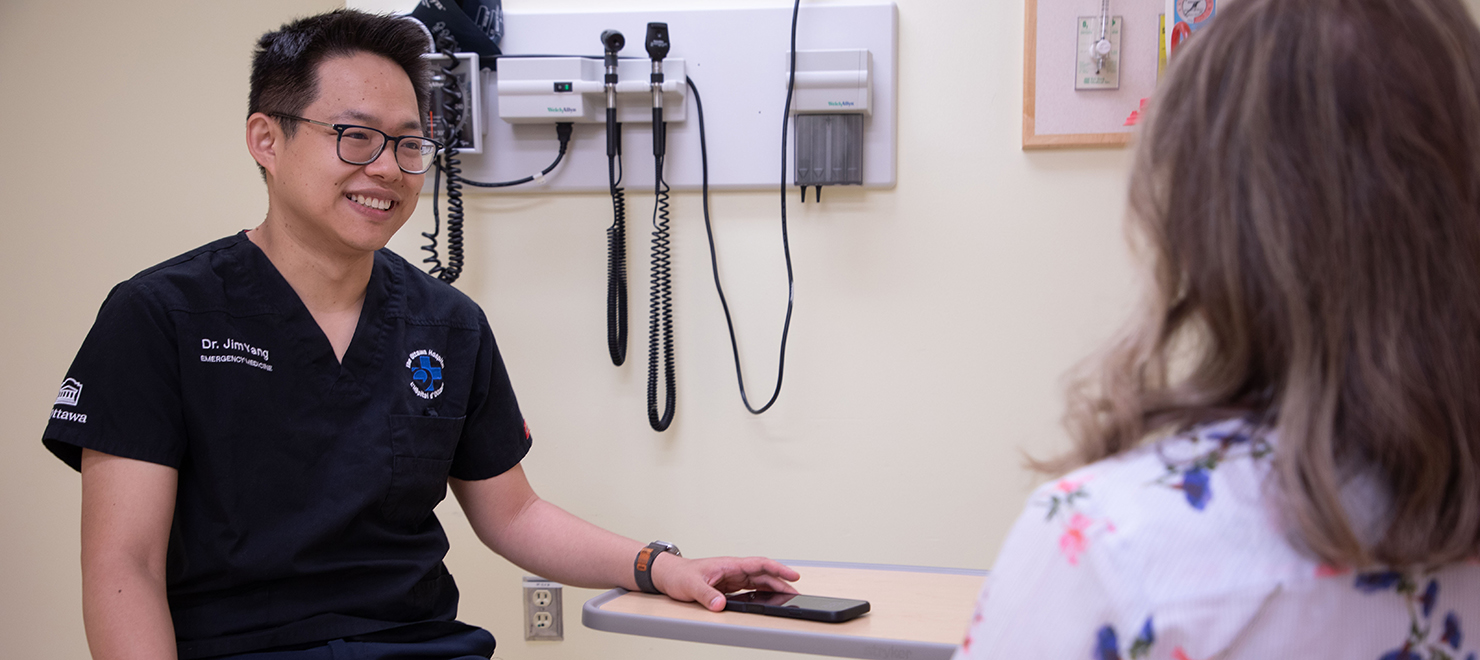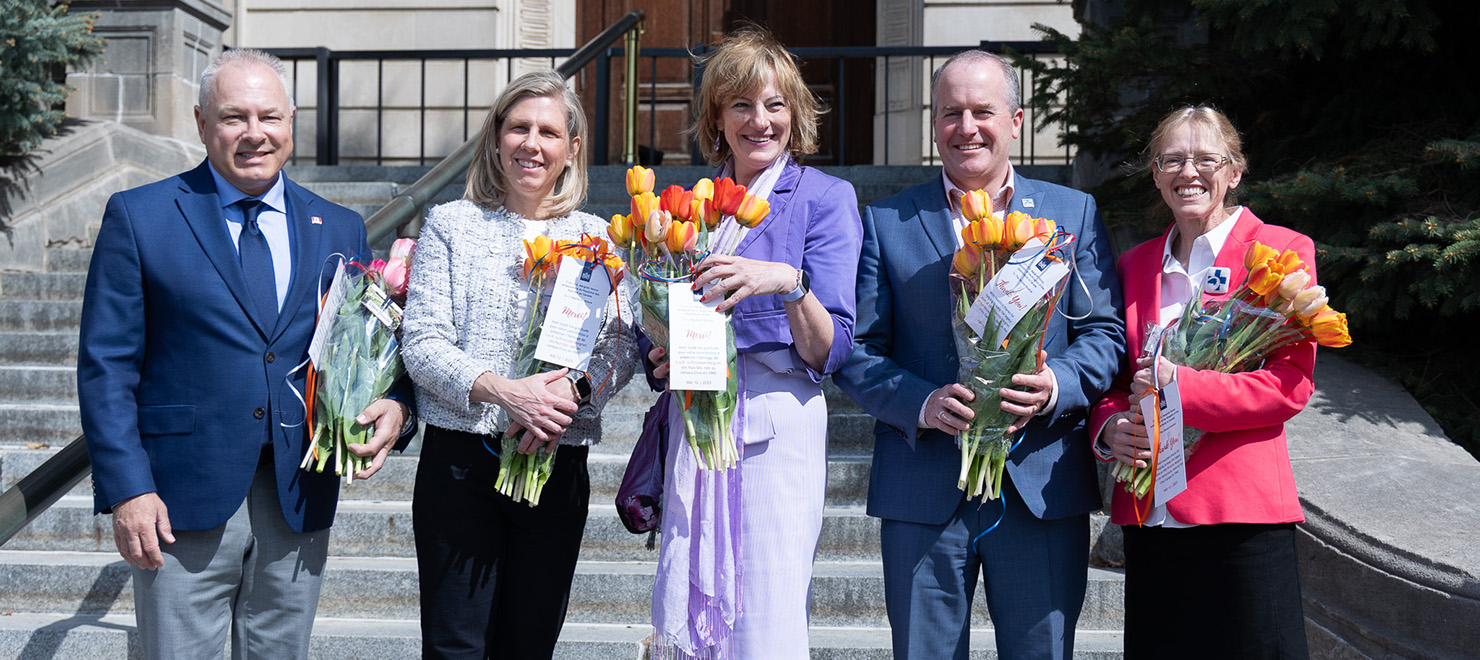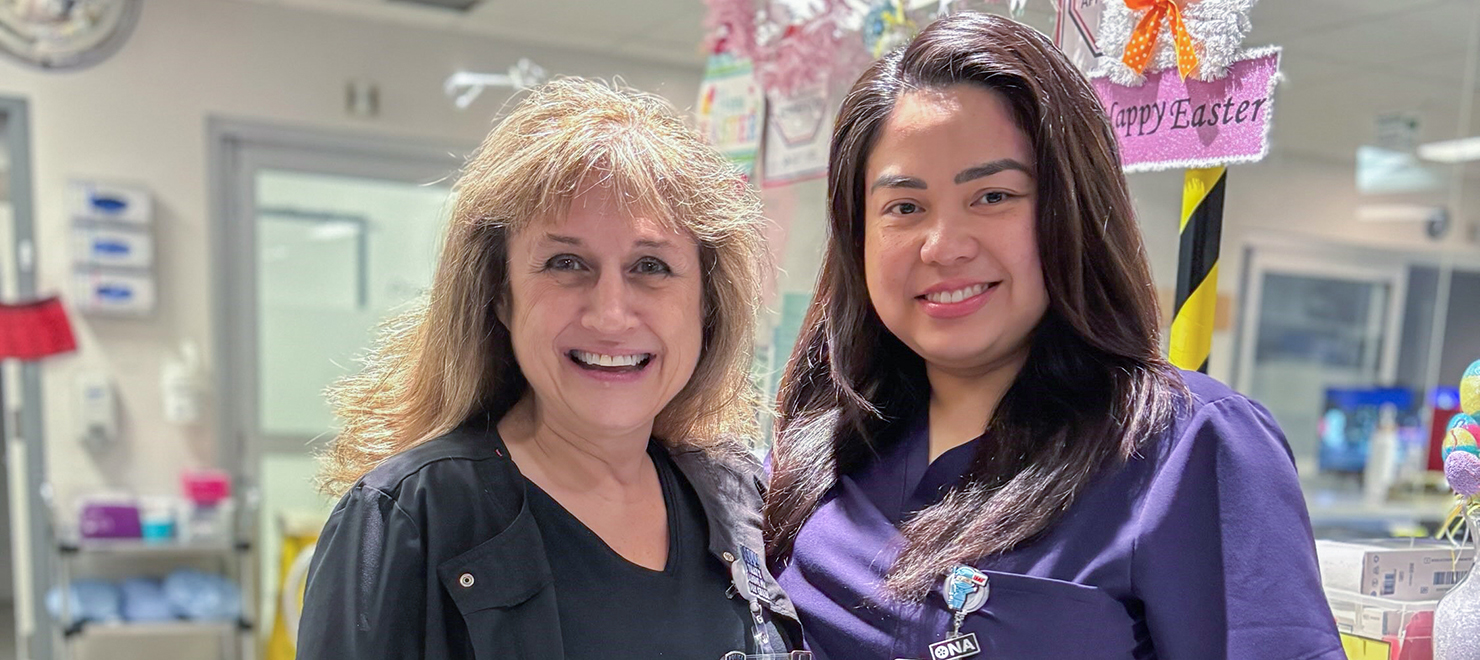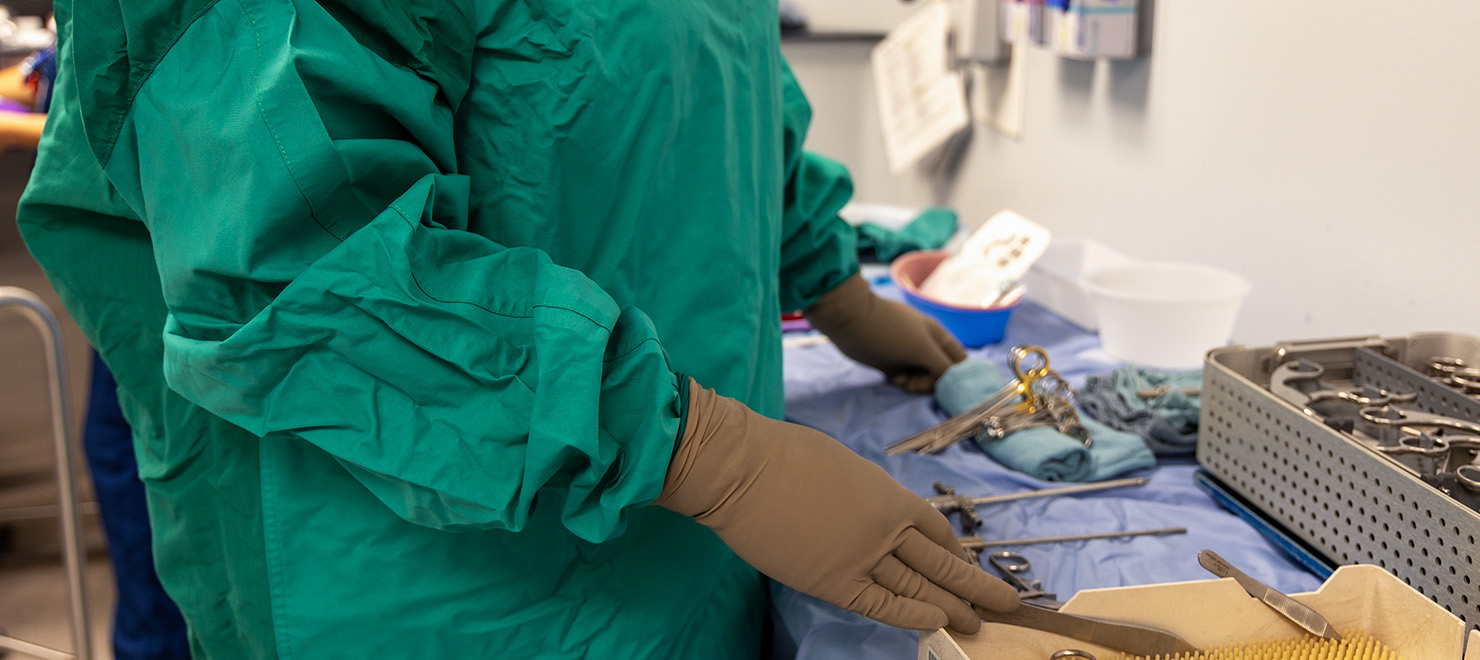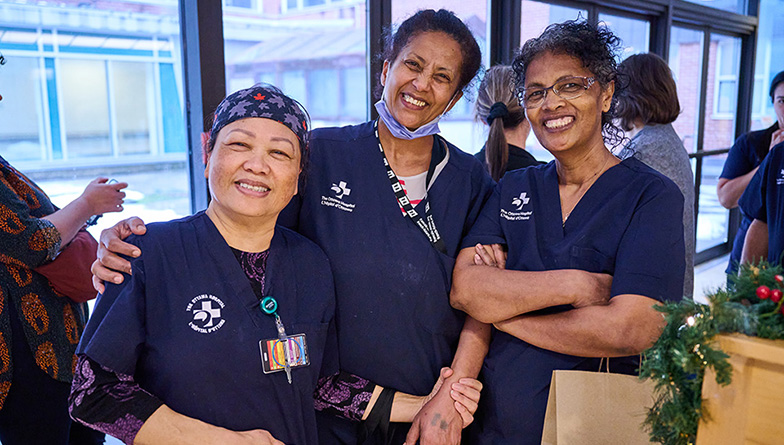
“I spent more than 25 years as the only operating female orthopedic surgeon in the city. I know what it’s like not to feel like part of the group,” says Dr. Kathleen Gartke, Senior Medical Officer at The Ottawa Hospital.
Dr. Gartke’s sentiments are not unique among many women physicians. Although women have outnumbered men in medical school for 20 years, individual and systemic biases in health care can prevent qualified women candidates from pursuing, achieving and staying in leadership roles.
To fight this inequality, Dr. Virginia Roth, now The Ottawa Hospital’s Chief of Staff founded the Women Physician Leadership Committee (WPLC), formerly known as the Female Physician Leadership Committee, in 2011. It identifies, mentors and trains potential leaders, and recognizes, enables and supports existing leaders. A decade later, the committee is still going strong. The number of women division heads at the hospital grew from 12 percent in 2010 to 23 percent in 2021, an increase of 92 percent.
Here’s how the WPLC has made inroads for women physicians.
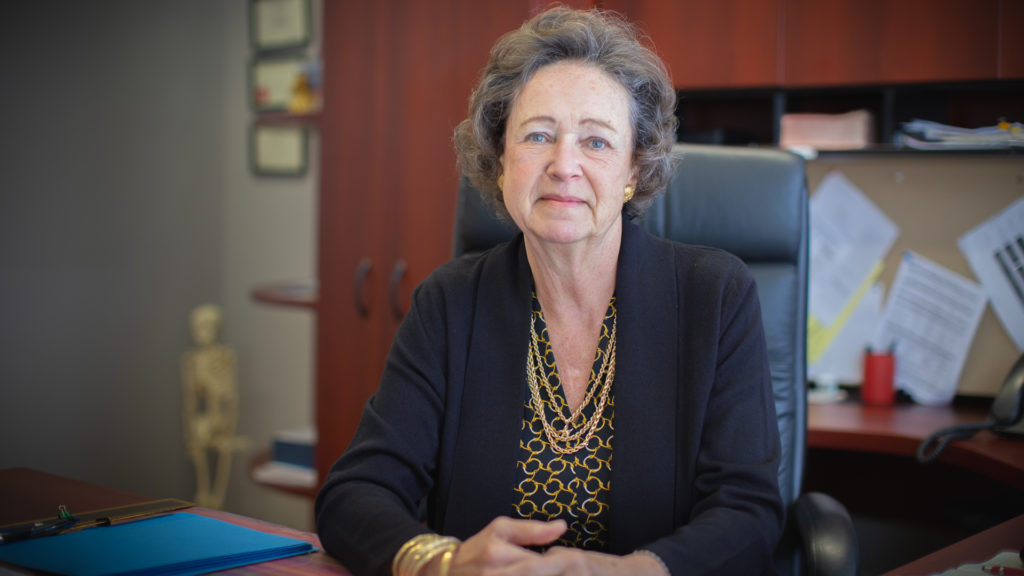
Busting myths about women and leadership
One of the WPLC’s goals is to discredit the many myths that persist about women and leadership, and neutralize their ill effects.
Myth: Women in medicine don’t want leadership positions.
Reality: Women are less likely to be hired or promoted because of their gender, and workplace discrimination against women is common. “Studies have shown that if a woman successfully pursues a leadership position, compared to a man, expectations are much higher for their abilities and achievements, how well they perform, and their professional behaviour,” says Dr. Camille Munro, WPLC co-chair and Director of Equity, Diversity and Inclusion for The Ottawa Hospital’s Department of Medicine. “Women are held to a higher standard than male peers.”
Myth: Women will ‘trickle up’ to the top.
Reality: System-wide policies and unconscious gender biases prevent potential women leaders from applying for and receiving leadership positions.
“Health care is traditionally the ‘old boys’ club, and in that club, opportunity is more organically generated,” says Dr. Gartke, who is also the executive sponsor of the WPLC. “In essence, the WPLC is trying to be the new girls club in the sense that we actively identify and support existing and emerging female leaders.”
Boosting potential and existing women leaders
WPLC members contact women early in their careers at the hospital so they know about the opportunities for advancement and education available to them. They also encourage department heads to identify and nominate women on their teams for intermediate and senior leadership roles.
“History has shown that women prefer to be tapped on the shoulder,” says Dr. Gartke. “They’re not as likely to put themselves forward. So as a committee, we’re able to encourage women to step forward and tell them that we would support them.”
This is one way the committee helps women not only feel valued, but also included in the operations of the hospital.

Laying the groundwork for future leaders
Since its inception in 2011, the WPLC has spearheaded many initiatives that have led to positive change at The Ottawa Hospital.
Significant bylaw changes: Two women must be on all selection committees for major positions like division head and department head. In the future, the selection committee should mirror the gender distribution of the applicants.
Representation at the top: For the first time, a woman will hold the position of either the president or vice-president of the medical staff association following the upcoming spring election.
A leave policy for medical staff: The policy encourages medical staff to take—and department and division heads to grant— maternal and paternal leave, adoption leave, health-related leave, bereavement leave, leave for family care and leave for educational sabbaticals.
Amenities for nursing parents: Private breast pumping rooms were established for staff and physicians at the General and Civic campuses.
Ongoing surveys: The committee gathers valuable data from departments and divisions about women physician’s leadership opportunities and the barriers they face. Their successes are tracked and potential future initiatives can be identified.
The Ottawa Hospital has made impressive progress, but there’s still more to do. Thanks to dedicated women leaders like Drs. Gartke, Munro, and others, we’re making our hospital a more diverse and inclusive place to work, volunteer and receive world-class health care.

Support patient care and research at
The Ottawa Hospital
You might also like…
Less time charting means more time with patients: How The Ottawa Hospital is using AI to support patient care
“I’m seeing and treating more patients.” Find out how DAX Copilot, a powerful AI assistant, is helping our physicians cut down on paperwork, improve their own well-being and spend more time with patients.
Bringing communities together, one stitch at a time
In celebration of June being both National Indigenous History Month and Pride Month, The Ottawa Hospital hosted a beading workshop for Indigenous and 2SLGBTQIA+ staff and their allies.
From Civic Campus to new campus: Dutch Ambassador visit marks ongoing legacy at The Ottawa Hospital
Dutch Ambassador Margriet Vonno visited our Civic Campus to present tulips to hospital staff, honouring the longstanding bond between Canada and the Netherlands and celebrating Princess Margriet’s legacy as The Ottawa Hospital looks to the future of health care.
Novice nurses and their mentors learn and grow together
Discover how mentorships at The Ottawa Hospital facilitate a smoother transition into practice for novice nurses, allow experienced nurses to hone their leadership skills, and play a crucial role in retaining nurses from both generations.
New reusable surgical gowns a step towards greener operating rooms
The Ottawa Hospital is finding safe, innovative ways to reduce medical waste in its operating rooms by using more environmentally sustainable products.
Photos: A century of women in health care
March 8 is International Women’s Day, and we’re celebrating the incredible women – past and present – who make The Ottawa Hospital a world-class health care organization.


 To reset, hold the Ctrl key, then press 0.
To reset, hold the Ctrl key, then press 0.
